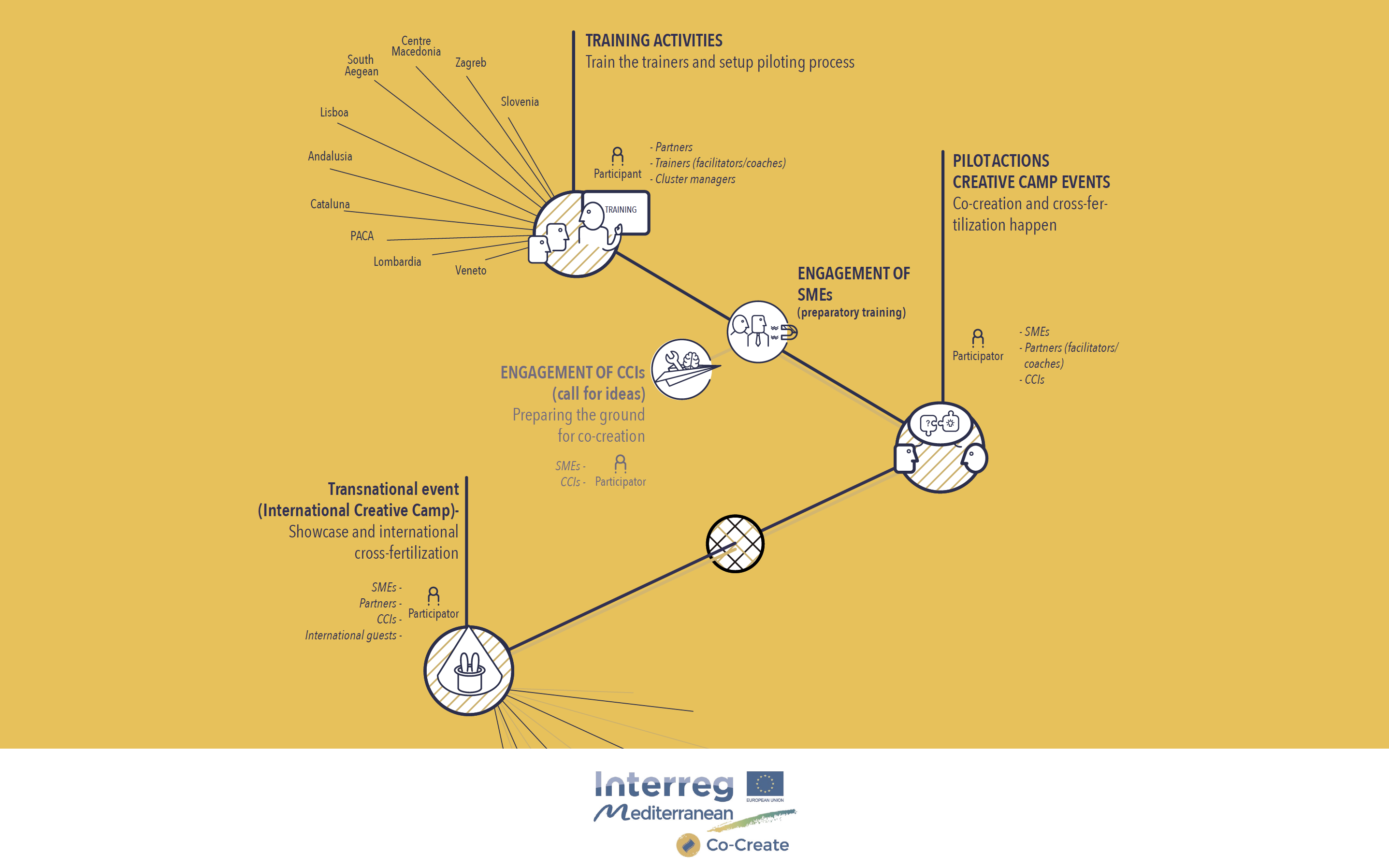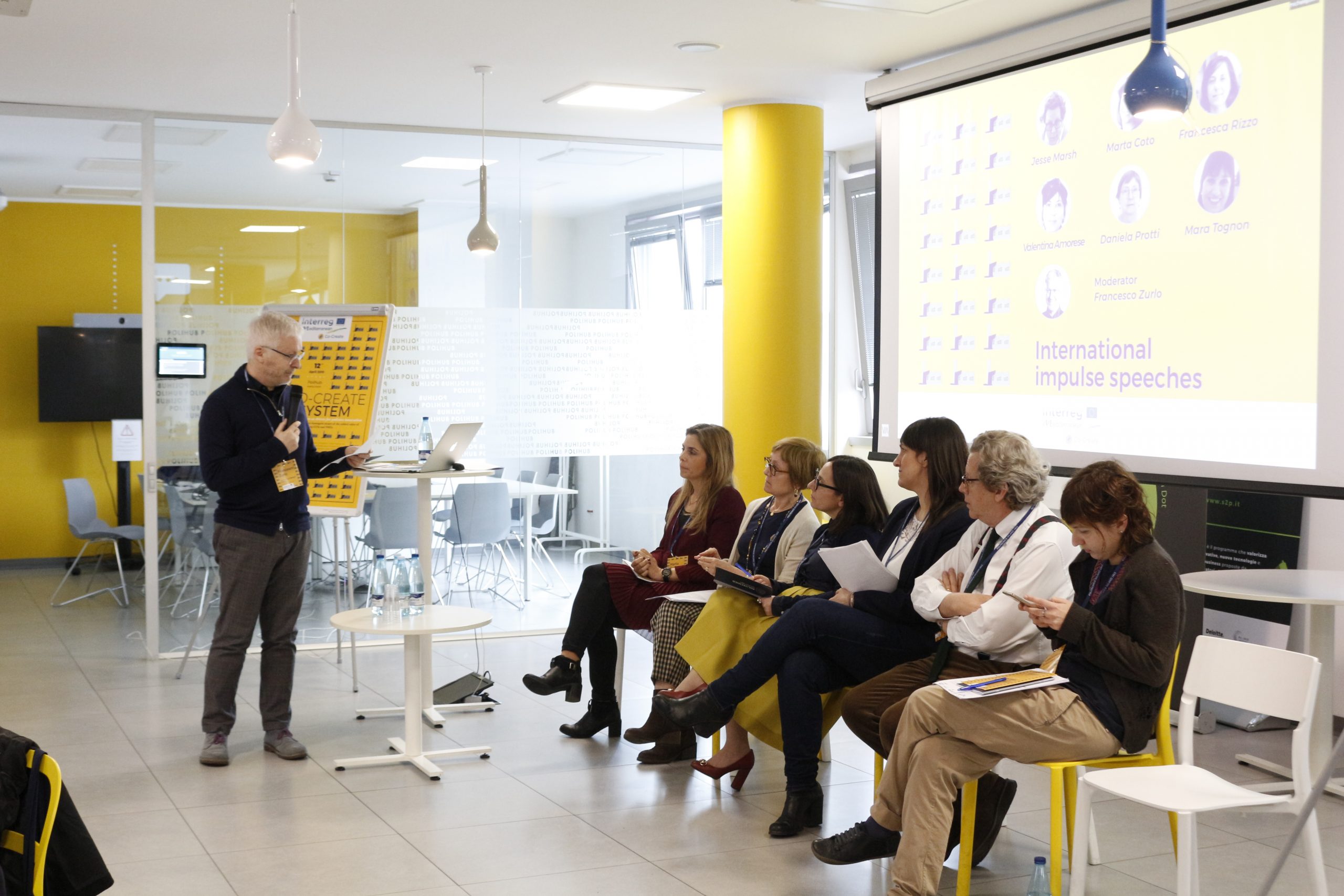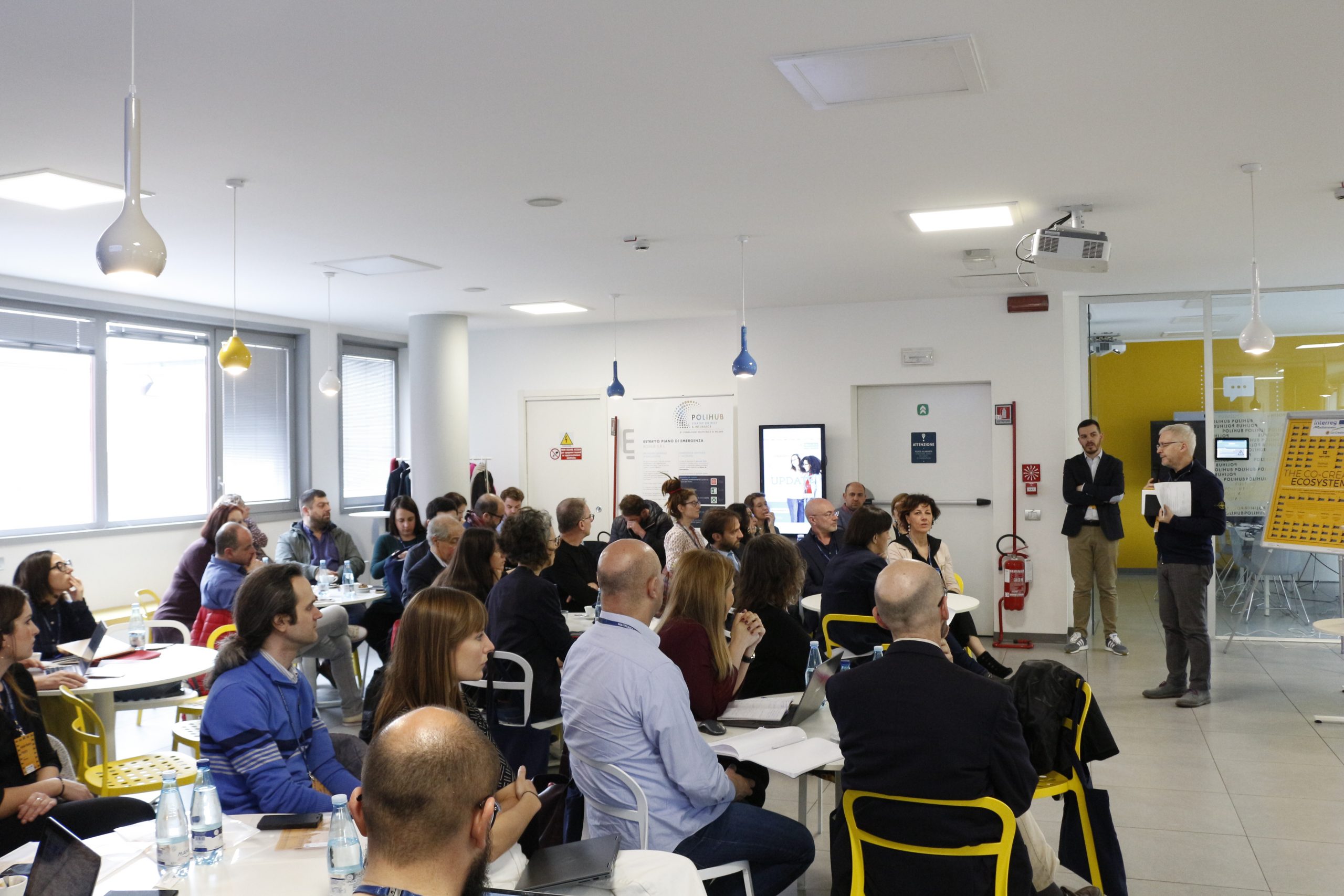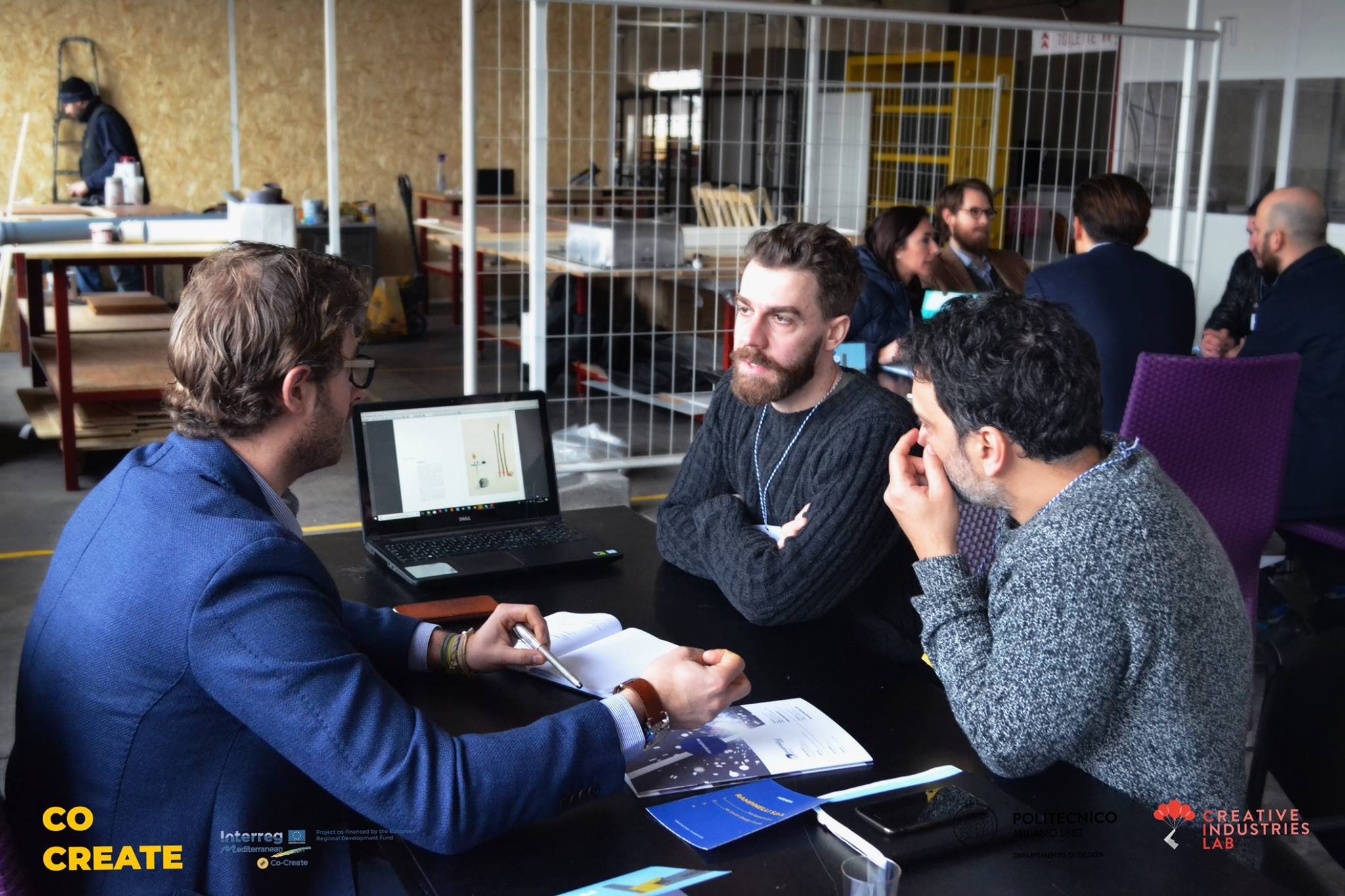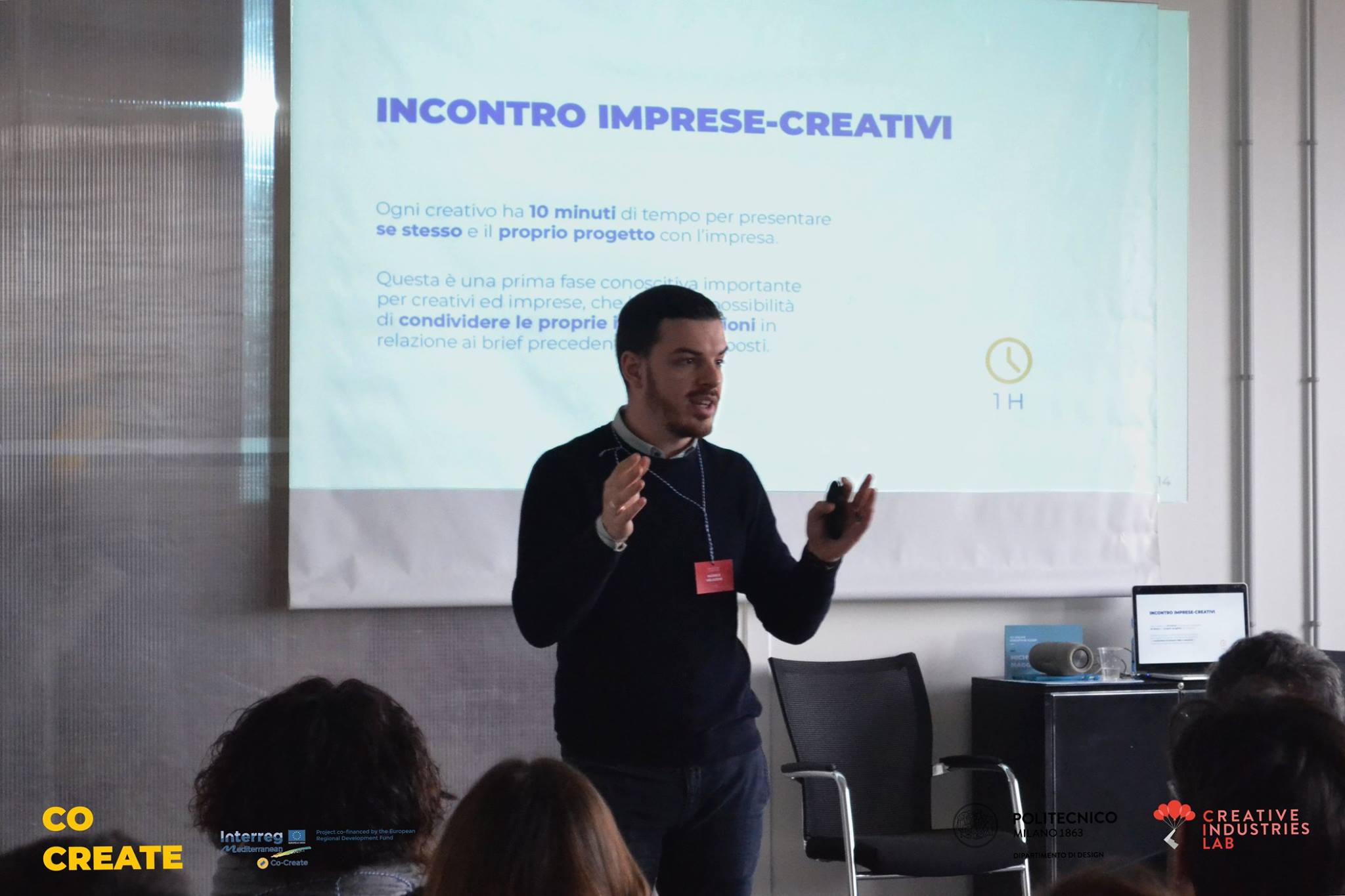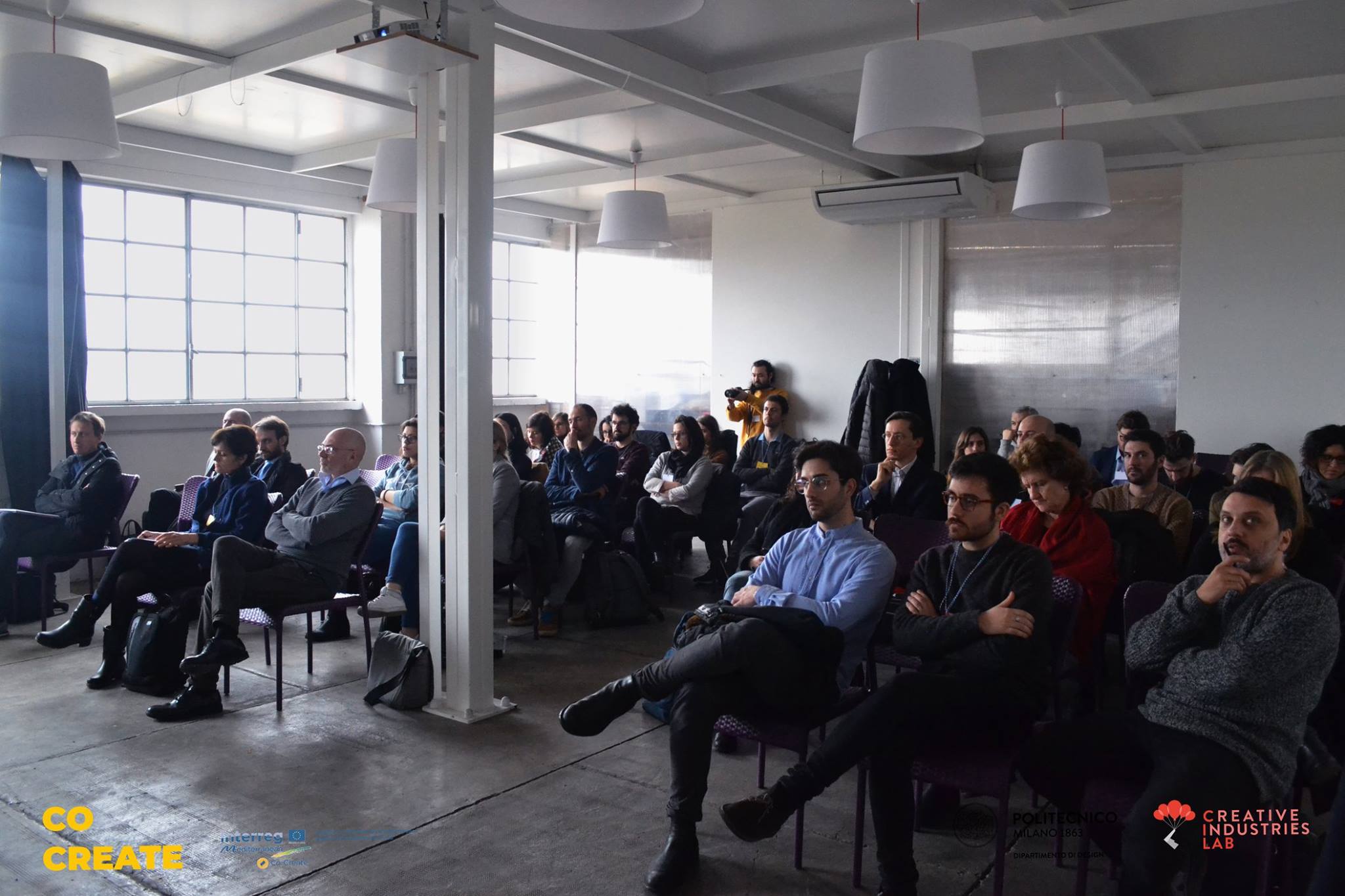Interreg MED Co-Create
Keywords: Cross-fertilization, Co-design, Transnational innovation
Research unit: Francesco Zurlo, Arianna Vignati, Luca Fois, Michele Melazzini, Xue Pei, Gianluca Carella, Renato Ocone
Politecnico di Milano, Department of Design, Cilab
E-mail (referent): francesco.zurlo@polimi.it
Co-Create supports cross-fertilization processes between creative industries and traditional clusters and contributes to test co-design and creative methods applied to entrepreneurs. The project promotes cooperation using new methodologies and tools addressed to clusters managers, SMEs and policy makers. The Co-Create project, implemented between November 2016 and January 2020, has supported cross-fertilization processes between creative industries and traditional clusters and has contributed to testing co-design and creative methods applied to entrepreneurs and clusters managers with the support of IPR instruments for their management. The project has promoted cooperation using new methodologies and tools addressed to clusters managers, SMEs, and policymakers. Co-Create main outputs include a cross-fertilization toolkit as an instrument to favor innovation among Clusters and SMEs. 380 SMEs supported on innovative projects; the set-up of a transnational innovation network between traditional and creative industries, and a Manifesto, promoting cross-fertilization processes and supporting the network enlargement. The overall objective of the CO-CREATE project is to support the competitiveness and enhance the innovation capacity of MED clusters of traditional sectors, stimulating cross-industries/sector cooperation and enabling the promotion of innovative products and services. Traditional sectors considered are mechanical, building, furniture, and IT sectors, and they were linked to Creative Industries. Cross-industries cooperation helps traditional sectors overcome market challenges and face the main social and technological trends, especially demographic changes, climate, environmental risk, cloud technologies, robotics, and design.
| Funding: European Regional Development Fund |
| Implementation: Year: 2016 Month: November |
